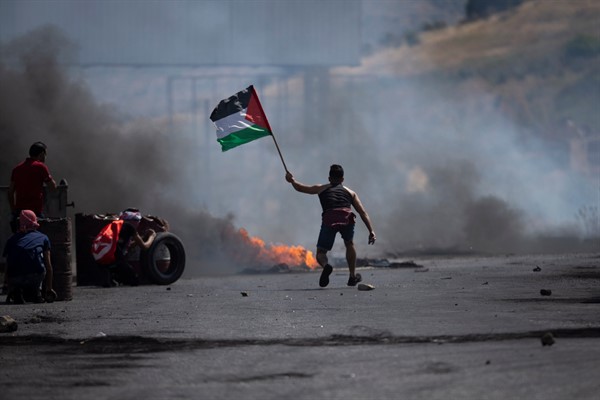Editor’s Note: This is the web version of our subscriber-only weekly newsletter, Middle East Memo, which takes a look at what’s happening, what’s being said and what’s on the horizon in the Middle East. Subscribe to receive it by email every Monday. If you’re already a subscriber, adjust your newsletter settings to receive it.
Framing the latest outbreak of fighting between Israel and Hamas is a distressing new reality for Palestinians: a great many power brokers in the region have lost any serious interest in their rights. In fact, the downgrading of Arab interest in Palestinian rights reflects a wider recommitment to authoritarianism by regional leaders who want to avoid repeats of the uprisings that flared across the region in 2010-2011.
Two critical trend lines catalyzed the current Israel-Hamas war and will play a determinative role going forward: Israel’s consolidation of control over Palestinians, which has foreclosed a two-state solution; and the acquiescence to Israeli expansionism by the international community, including the four countries that normalized relations with Israel—the United Arab Emirates, Bahrain, Morocco and Sudan—during the final months of the Trump administration.

